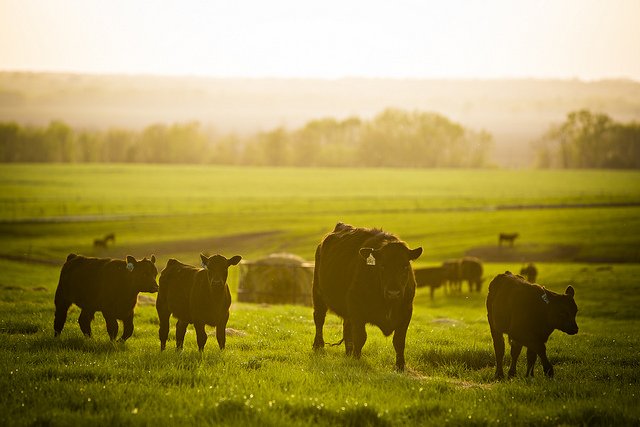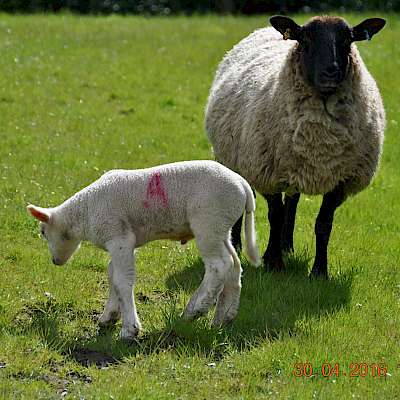The Department of Environment, Food and Rural Affairs (DEFRA) has published its strategy on the future of farming, but we think it falls short on the urgent need to shift our food culture towards healthy and sustainable eating. They have launched a ten-week consultation - have your say.

Since the country voted to leave the EU in June 2016, you could say we’re not a whole lot closer to understanding what the future holds and how Brexit will impact on our food and farming. In the political jargon, Brexit is an ‘unfrozen moment’, an opportunity to debate what kind of food future we want to see and now the Department of Environment, Food and Rural Affairs (DEFRA) has presented(27 February) its proposals on the future of farming: Health and Harmony: the future for food, farming and the environment in a Green Brexit, and launched a ten-week consultation to gather feedback.
Eating Better welcomes the proposal that future agricultural support payments should be linked to delivering public goods, including improving environmental protection and animal welfare. However, in other respects the consultation is short on detail and is narrowly focussed on farming rather than on a broader food strategy, as its title might imply.
We welcome the proposals to incentivise more sustainable methods of farming that, for example, create new habitats for wildlife, increase biodiversity, reduce flood risk, better mitigate climate change and improve air quality by reducing agricultural emissions. However, the strategy falls short on the urgent need to shift our food culture towards healthy and sustainable eating with ‘less and better’ meat and dairy for our health and the health of the planet. Reference to ‘health’ in the title of the consultation appears to refer to animal health on closer reading, not human health. And it is disappointing, for example, that no commitments are made towards the role of public sector food procurement, in hospitals, prisons and schools, as well as government departments, to supporting this shift to healthy and sustainable eating as well as providing a market for quality British produce.
We recognise that Defra has put these proposals out for consultation and wants to hear the views of everyone who cares about the future of the food they eat. Eating Better encourages everyone to respond. Our Beyond the CAP report sets out a suite of ten policy recommendations for better meat and dairy production and consumption post Brexit. It calls for:
· An integrated food and farming strategy to replace CAP which drives progress towards climate change goals for agriculture and supports public health and restoring biodiversity.
· A transition to healthy sustainable eating patterns with less and better meat and dairy with more plant-based eating.
· High standards and enforcement for environmental protection, food safety, antibiotic use in livestock farming and farm animal welfare.
· Public money for the provision of public goods such as wildlife, farm animal welfare, environmental and landscape benefits, including building healthy soils, enhanced biodiversity, flood alleviation and climate change mitigation.
· Sustainable levels of livestock production in line with the carrying capacity of land, climate change goals and environmental limits, the principles of sustainable diets and public expectations for high quality, high welfare, sustainably produced UK livestock products.
· Protection for high quality permanent grassland and carbon-rich soils that avoids overgrazing.
· Sustainably sourced animal feed to reduce the UK’s impact on climate change and biodiversity in other countries. Alternative feeds with lower impact should be developed, including consideration of heat-treated, safe, food waste for pigs and chickens.
· Clear and honest labelling including a mandatory method of production labelling for all livestock products.
· Economic support for sustainable livestock production systems including more extensive pasture-based, agro-ecological, organic, and mixed farming systems.
· Sufficient transition funding for innovation, research and training to support the practical and cultural shift needed.
Defra’s consultation is open until 8 May 2018.
Images, some rights reserved:
cattle_thompson research center_0139 by CAFNR (CC BY-NC 2.0)
